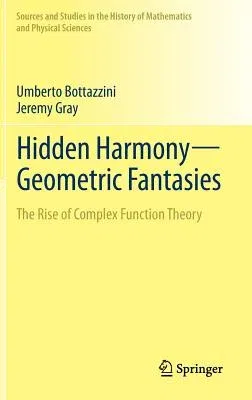Umberto Bottazzini
(Author)Hidden Harmony--Geometric Fantasies: The Rise of Complex Function Theory (2013)Hardcover - 2013, 21 June 2013

Qty
1
Turbo
Ships in 2 - 3 days
In Stock
Free Delivery
Cash on Delivery
15 Days
Free Returns
Secure Checkout

Part of Series
Sources and Studies in the History of Mathematics and Physic
Part of Series
Sources in the History of Mathematics and Physical Sciences
Print Length
848 pages
Language
English
Publisher
Springer
Date Published
21 Jun 2013
ISBN-10
1461457246
ISBN-13
9781461457244
Description
Product Details
Authors:
Book Edition:
2013
Book Format:
Hardcover
Country of Origin:
NL
Date Published:
21 June 2013
Dimensions:
23.62 x
16.26 x
4.83 cm
Genre:
Historical
ISBN-10:
1461457246
ISBN-13:
9781461457244
Language:
English
Location:
New York, NY
Pages:
848
Publisher:
Series:
Weight:
1292.74 gm